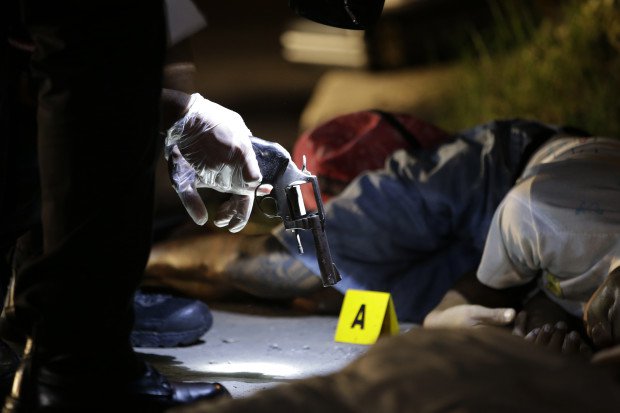
Amnesty International has described the wave of killings unleashed by President Duterte’s anti-drug crusade as a “crime against humanity” and a “war on the poor”.
A report released by the human rights watchdog today (Wednesday, February 1) says “pressures from the top” and “financial incentives” have created an “informal economy of death” that encourages police to murder indiscriminately.
Amnesty’s Crisis Response Director Tirana Hassan said: “This is not a war on drugs, but a war on the poor. Often on the flimsiest of evidence, people accused of using or selling drugs are being killed for cash in an economy of murder.
“Under President Duterte’s rule, the police are breaking laws they are supposed to uphold while profiting from the murder of impoverished people.
“The same streets Duterte vowed to rid of crime are now filled with bodies of people illegally killed by his own police.”
Amnesty’s report, entitled: “If you are poor you are killed: Extrajudicial Executions in the Philippines’ War on Drugs.”
comes just two days after the Philippine National Police (PNP) was ordered to suspend its anti-drug operations because of rogue cops running out of control.
Duterte’s crusade still enjoys widespread public support, despite its spiralling death toll. Since his election, there have been some 7,000 killings linked to the campaign. More than 2,000 have been attributed to official police operations but the bulk are vigilante-style executions, recorded by the PNP as “deaths under investigation.”
“Acting on instructions from the very top of government, the police have killed and paid others to kill thousands of alleged drug offenders in a wave of extrajudicial executions that may amount to crimes against humanity,” Amnesty concluded.
Since the outset of the campaign, police have been accused of conducting extrajudicial killings in the name of the drug war, a claim that PNP chief Ronald dela Rosa has consistently rubbished.
However dela Rosa has been forced to admit corruption in the ranks after South Korean Ji Ick Joo was kidnapped and killed by anti-drug officers. The businessman was strangled to death just yards from the police chief’s office at Camp Crame.
Amnesty said its report documents “how the police, working from unverified lists of people allegedly using or selling drugs, stormed into homes and shot dead unarmed people, including those prepared to surrender”.
The report documented 33 cases involving 59 deaths. Fieldworkers interviewed 110 people from across the country examining extrajudicial executions in 20 cities.
The research was conducted throughout November and December of last year. “The organisation also examined documents, including police reports,” Amnesty added.
Among their most shocking findings, was the suggestion that police were killing for cash. According to a policeman with the rank of Senior Police Officer 1, they could earn between 8,000 to 15,000 pesos per kill. He said the payment came in cash from “headquarters” and the word “encounter” would always be used to imply the target had fought back.
“We’re paid in cash, secretly, by headquarters… There’s no incentive for arresting. We’re not paid anything,” said the officer, who has reportedly served for more than a decade.
Police even made deals with funeral parlours, Amnesty claims, getting cash payments for every dead body they deliver. There are also suggestions that they looted the homes of their victims.
“The police are behaving like the criminal underworld that they are supposed to be enforcing the law against, by carrying out extrajudicial executions disguised as unknown killers and ‘contracting out’ killings,” said Amnesty.
Ms Hassan said the situation in the Philippines was “a crisis the entire world should be alarmed by”.
“We are calling on the government, from President Duterte down, to order an immediate halt to all extra-judicial executions.
“We are also calling on the Philippines Department of Justice to investigate and prosecute anyone involved in these killings, regardless of their rank or status in the police or government,” she said.
She also raised the prospect of international courts getting involved, saying the international community should turn to the International Criminal Court to carry out a “preliminary examination into these killings, including the involvement of officials at the very top of the government.”
A merciless crackdown on drugs was Duterte’s headline election pledge when he won the presidency by a landslide last year.
Legally, it should be the Philippine Drug Enforcement Agency (PDEA) that leads all efforts against illegal narcotics.
However, Duterte placed responsibility in the hands of the PNP, led by his friend and ally dela Rosa, who also spearheaded his anti-crime campaigns in his native Davao.
As we recently reported (here), Duterte has admitted that the PNP is “rotten to the core”. Despite this astonishing claim, he said they should continue the anti-drug campaign until the end of his term in 2022.
However, the very next day dela Rosa announced that his force would step down from the campaign, in order to focus on rooting out rogue officers. (See our report here.) It has since been announced that the army will be called in to help conduct the purge.
Now that the 160,000-strong PNP is barred from all anti-narcotic activities, the war on drugs will be pursued by the PDEA.

Comments are closed.